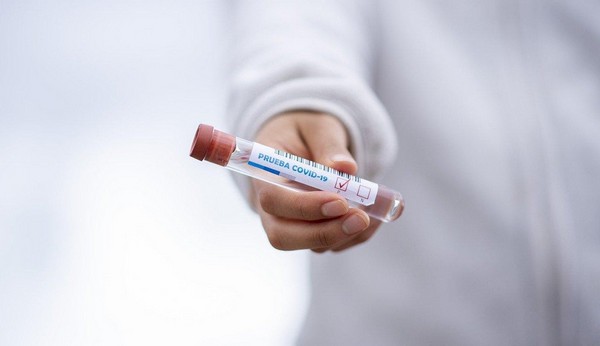Every year, an estimated 300,000 Americans order a DNA test to determine whether or not a man is the biological father of a child. Over on the other side of the Atlantic, a single British laboratory says that they alone perform around 30,000 tests a year, and that number is growing year-on-year. Suffice to say the industry is huge throughout the world and shows little signs of slowing down.

Thanks to rapid improvements in genetic science over the last couple of decades, a testing lab can produce a conclusive result with over 99.99% accuracy using nothing more than a sample of cheek cells collected using a buccal swab. A lot has changed since the earliest DNA tests that were used by the police in the 1980s. Unlike the paternity tests of the past, modern testing is fast, affordable, and accessible to average members of the public.
Challenges due to coronavirus
In recent months however, the worldwide coronavirus pandemic has made it much more difficult to access medical testing and other healthcare services, including DNA testing.
With many countries living life in lockdown, people have been asked to stay away from hospitals, doctor’s offices, and medical centers unless absolutely necessary. This poses a challenge for people who are in desperate need of answers but cannot access testing. Visiting a medical center would pose a risk not only to the person being tested, but to the lab staff who have to collect and process the samples – especially when you consider that children and young people can become so-called ‘super-spreaders’ , carrying the infection with little or no symptoms and unknowingly passing the virus onto other people.
What should a person do then if they need a DNA test and they need it urgently? The good news is that there is a solution – the home paternity test.
Two types of paternity test
Many testing labs offer two types of DNA test – a ‘legal’ test, and a less official ‘peace of mind’ test.
Both are just as accurate as each other and use the exact same scientific methods. The only difference is that a peace of mind test can be sent off in the mail and done at home, with no supervision – are more crucially, no close human contact. As the name suggests, this test is simply to satisfy your own curiosity and peace of mind. It is just as valid as a legal test – the only difference is that the results cannot be used for official legal purposes.
If you needed a DNA test to settle a child maintenance dispute, child custody arrangements, an immigration case or other legal matter, you would need a legal test. Legal testing does require a representative from the lab to visit your home and collect the samples in person. They will also check your ID, fill out al the relevant paperwork, and take the DNA samples away with them. The samples are then transported back to the lab for testing under a strictly controlled and recorded chain of custody. This prevents tampering or mistakes, making the results useful in court.
At the moment most testing companies are still offering peace of mind tests, and some may be offering a limited service for legal testing (with extra safety & hygiene precautions in place). Contact a reputable testing lab for more information.
How does the home paternity test work?
You will receive a testing kit in the mail that contains two or more packs of mouth swabs (one set for each person being tested), envelopes for returning the samples back to the lab, and a full set of instructions. A separate kit can be sent to a different address if the child and the alleged father do not live together.
After returning the samples, your results are typically processed and mailed or emailed to you within days (some companies even offer a rapid same-day service if you are willing to pay an additional fee). Labs that are still operating have strict hygiene and safety measures in place in order to protect their staff. Before allowing you to order a testing kit, they might ask if you or anyone in your household has been displaying coronavirus symptoms. It’s important for everyone’s safety that you answer these questions honestly.
As well as paternity testing, other relationship tests are available – including maternity, twin, sibling, grandparent, and aunt/uncle to name just a few. Many labs offer prenatal paternity testing, although these tests do require a blood sample from the expectant mother. Some DNA companies have even adapted their labs in order to offer coronavirus testing kits.
How do I order a home DNA test?
Even though many DNA labs have closed their doors to the public, you can still contact them via phone or through their website to order a home testing kit. There are hundreds of commercial testing labs out there, but you should only trust a company that is fully ISO 17025 accredited. You can find a list of recommended companies along with impartial reviews on dnatestingchoice. If you are ordering a test in the United Kingdom, you can also find a list of accredited labs on the government website.
